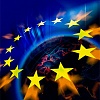A Political Chernobyl
In
Log in if you are already registered
Although German politicians sighed with relief an agreement on the settlement of crisis in Ukraine, this sense of relief is long gone. Germany saw in the agreement of February 21, 2014 a glimmer of hope and a potential opportunity to settle the conflict and legitimize the country’s new government after an election. According to Germany’s foreign minister Frank-Walter Steinmeier, the balance of powers and the delicate equilibrium in the country were undermined by Yanukovich’s escape from Ukraine and the Party of Regions’ deputies changing their allegiance and joining ranks with the new government.
The German mass media call the situation in Ukraine “a political Chernobyl”, broadcasting, on a daily basis, special reports about the events on the Black Sea coast and Crimean residents’ views on the situation. Unlike the politicians, about whom we’ll talk later, the German media do not practice restraint discussing the events. Berliner Zeitung printed an article called “The Russian Gendarme”[1], in which Christian Esch dissected the Russian president’s ulterior motives in relation to Crimea and explained “Russia’s unwillingness to engage in dialog” by, among other things, the success and the world leaders’ support of the Sochi Olympics.
Die Welt calls for more strenuous efforts, on the part of Germany, to settle the conflict and to contain Ukraine’s “shivers” vis-à-vis Russia, lest Germany again become “Europe’s weak, sick link”[2]. Putin’s press-conference has been met with ambivalent reactions. Some European media channels express their shock at the fact that the Russian president has shown immunity to the “pressure and criticism from the world leaders” while others tend to agree with Angela Merkel’s view that “the president of Russia is out of touch with reality”[3].
The German political elite is concerned about the conflict “on the European neighborhood” but remains confident about diplomatic “solutions for the situation”. Mr. Steinmeier frequently repeated the phrase: “The situation still can be changed, the new division in Europe still can be averted” in his appearances on two German TV- channels, ZDF and Das Ertse, on March 2, 2014, as well as at a meeting in Brussels on March 3, 2014.
German politicians talk about the essential requirement for “a common European response on the Ukraine´ crisis” (Gregor Gysi, The Left Party); about “finding a solution within the conflicting parties’ agreements and international obligations” (Rolf Mützenich, Social Democratic Party of Germany) while noting that “Russia’s position with relation to Ukraine and its constituent parts is a serious obstacle to resolving the conflict diplomatically” (Mr. Steinmeier, Minister of Foreign Affairs).
Some political analysts ask a question why Russia needed this particular demonstration of force while it had all necessary means at its disposal to “score many points and get yet again geopolitical victory through diplomacy, becoming a mediator to which representatives of both parties would turn to”.
The German political elite feel its responsibility for what is happening in Ukraine without underplaying the importance of contacts and economic ties with Russia. The problems of gas import and export of industrial machinery, equipment and chemicals are not ignored in Germany. Der Spiegel printed an article with a calculation of economic and financial costs of the crisis in Crimea for the trade relations between Russia and Germany. The figures are impressive: 76.5 billion euro for Germany and 40.5 billion euro for Russia.[4] This is the volume of import and export between the countries in 2012.
Anyway, on March 5, 2014, France will host a meeting between Russian and German foreign ministers– Mr. Sergey Lavrov and Mr. Frank-Walter Steinmeier – to discuss the situation in Crimea. John Kerry is expected to attend the meeting as well. Before flying to Paris, Mr. Steinmeier in a very brief interview cautiously said that “the discussion is going to be arduous”. Of course this is not the first or the last meeting of the diplomats, who make efforts “to keep the doors open”. But achieving this is still a big challenge, according to Mr. Steinmeier. The biggest difficulty is the time. “We’re pressed for time and far from a resolution”.
The situation is changing every day; nobody is able or willing to make forecasts. The German politicians believe that “unpredictability of the Russian leaders” is one of the elements that make prognostication problematic.
History is lived forwards but it is written in retrospect... We have to wait before we learn about each party’s real motives, provided that Mrs. Merkel, Mr. Lavrov or Mr. Steinmeier will set about penning memoirs and want to spill the beans about the Ukrainian events in 2013-2014.
[1] Cristian Esch, Der Russische Gendarm, Berliner Zeitung, 4.3.2014, S.3.
[2] Die Welt, 5.3.2014.
[3] Clemens Wergin, In der eigenen Welt, Der Tagesspiegel, 4.3.2014, S.1.
[4] Von Franziska Bossy & Nicolai Kwasniewski, Gas, Öl, Autos, Maschinen: So eng sind Deutschland und Russland verflochten, Der Spiegel, 5.3.2014, in: http://www.spiegel.de/wirtschaft/unternehmen/sanktionen-krim-krise-deutsche-firmen-fuerchten-eiszeit-mit-russland-a-956883.html




